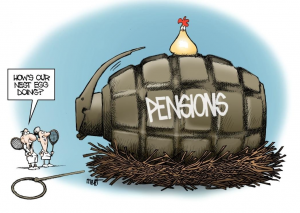
Check For Promotions
They give the example of Michael McCormack, who has followed the wireless industry for years as part of his job. Since he also is a customer, he was able recently to take advantage of a T-Mobile US Inc. promotion offering four lines for $150 per month.
Make Changes In Service According To Needs
Yeah, but what if your job doesn’t include up-to-the-minute info on such things? The great majority of consumers don’t pay much attention, so they go on paying too much. Some of them are “loyal to a fault,” failing to make changes in their service because they’ve been with provider for a time.
But some 6 percent of the 90,000 responders to a recent Consumer Reports survey said they had changed service in the past year. The savings amounted to about $20 per month, the survey found.
Compare Prices With Other Carriers
The Consumer Reports experts said users should be paying no more than $50 per line, instead of about $100. The carriers aren’t prone to let consumers know how they can save money, said Michael Gikas, senior editor for electronics and technology. T-Mobile started a price war in 2013 and the effects are still being felt. But it’s up to the customer to check on the prices being offered by various carriers and switch when it’s to their advantage. The carriers often offer special prices to customers threatening to make a change.
Customer Satisfaction
Those who are happy with their service are the least likely to change. Others don’t want to go through the hassle of swapping providers, even if they pay more to stay put.
Verizon Communications Inc. has the lowest rate of “churn” or customer defection, in the industry. Company officials say that is because of their focus on quality service and working with customers to guarantee satisfaction. Spokespersons for other carriers emphasized their features, which they believe to be as much as factor in retaining customers. The competition is fierce. T-Mobile has moved customers to lower-priced plans and AT&T has responded to industry price cuts by not only reducing their prices but increasing data allotments.
With this kind of competition, consumers who are willing to stay current with the market are likely to find lower prices.






